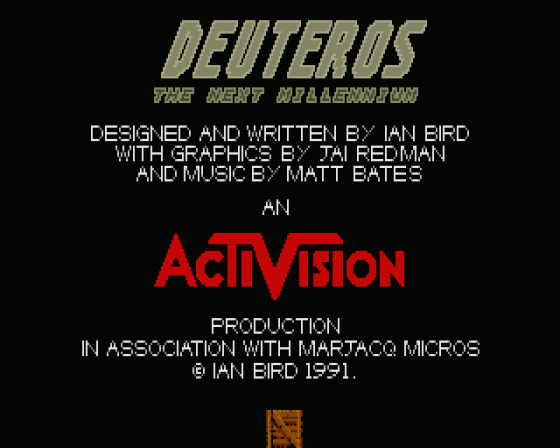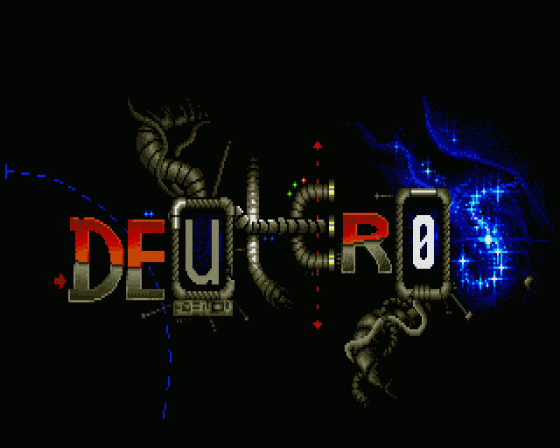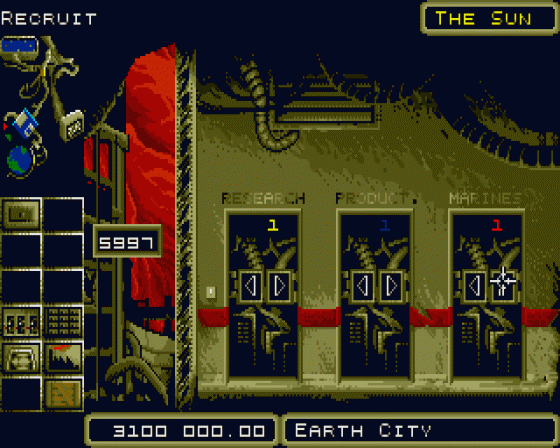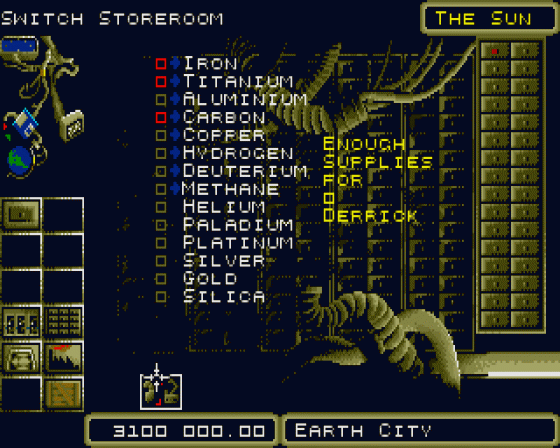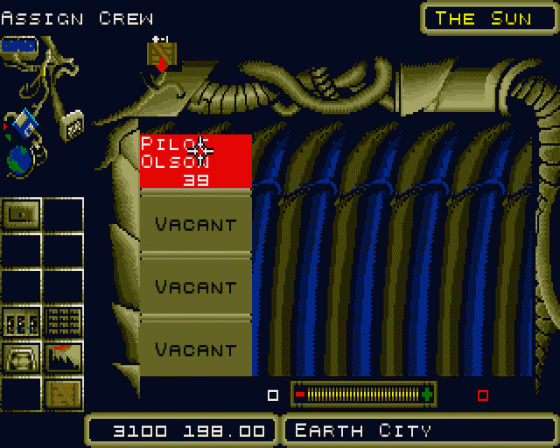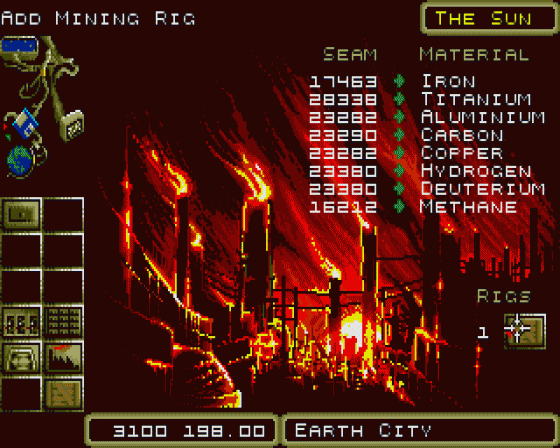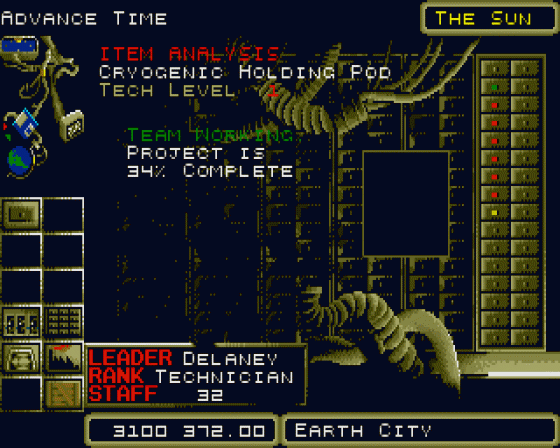
ST Format
 1st April 1992
1st April 1992
Categories: Review: Software
Author: Ed Ricketts
Publisher: Activision
Machine: Atari ST
Published in ST Format #32
Deuteros
So there's the human race, happily trundling along in its gormless way on Earth, and along comes something called space exploration and scares the bejasus out of it. And you can bet it'll all end in tears. Ed Ricketts reluctantly climbs aboard the good ship Vomit and blasts off...
It's like this. For a thousand years after the end of Millennium 2.2, the Earthlings (that's us) have been steadily forgetting the art of spaceflight learnt during that period so long ago. After all that strenous exploration it seemed a good idea to just settle down, have the lifestyle equivalent of a nice cup of tea and let all that space colony nonsense sort itself out.
That is, until some ambitious git decided that perhaps it might be a good idea to get back out there and see what had been happening in the meantime. With a collective sigh of resignation, the humans begin poring over their old "How to Build A Spaceship in Ten Easy Steps" plans, hammering away feverishly behind locked doors - generally staying up late, drinking too much coffee and living only on Big Macs and chips.
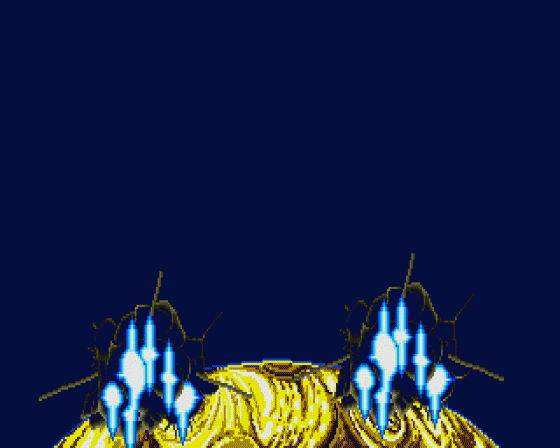
Thus the scene is set for Deuteros. You find yourself in the year 3100 at the start of the new and glorious space age. Your position in the universe is Earth City controller, which essentially means Man in Charge of Everything. Your first job is to get an orbital factory in place around the Earth in order to provide a stepping-stone to the rumoured Moonbase - supposedly built during the first Space Age.
But before you can build anything, you need some resources - minerals, metals, things like that. And before you can get some resources, you need a mining derrick. And before you can build a mining derrick, you need to research it. And (hang on, there's not much more) before anything can be researched, you need some people to research it. Nothing comes easy in Deuteros.
Orbital factories are built in eight parts, so you need a way of transferring these parts from Earth City to a place in orbit. Which means you need a shuttle - not to mention fuel - to get it going. All these things have got to be researched and built before you can get anywhere.
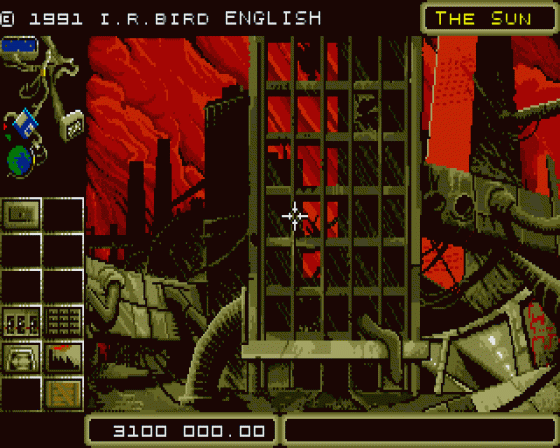
Unfortunately, shuttles can only shuttle (hence, surprisingly, the name) between the host planet and its orbital factory. So, how are you supposed to spread to the other planets in the solar system - and beyond it? You need to build an IOS - or Interplanetary Operations Spacecraft - for that. These enormous beasties are capable of travelling as far as you like (assuming they're given enough fuel) and are capable of carrying three pieces of equipment at the same time.
As your research and production teams become more experienced, they, er, research and produce things much faster. You also find exotic items appearing on the research menu, like the Auto Cargo Computer, which can automate the ferrying of minerals from one place to another. But... just because you can research, it doesn't mean you can build it. Most items need strange minerals only found on other planets - you can see which by looking at the mineral analysis. You can only mine on these planets if there's an OF in orbit around it.
As you spread your operations over more planets, you may encounter other lifeforms. It's up to you to decide whether they're friendly or helpful, but you might find they can be quite useful in certain situations. In fact, it's when you meet these aliens that the plot of the game really starts to unfold. You finally have some sense of purpose and begin to see a way of finishing the game.
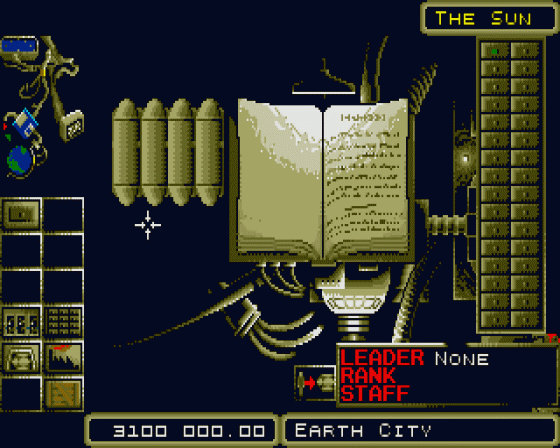
Deuteros isn't really a game that lends itself to especially stunning visuals, being more or less a series of static screens, so the well-drawn and detailed graphics come as a bonus. There's a tiny bit of animation (flashing lights and so on) to liven things up, but you don't really notice the visuals too much anyway because you're so engrossed in trying to build things. The sound is, well, odd; as in Millennium 2.2 - most screens have got a constant noise burbling away in the background. Although it's not exactly musical, strangely it does seem to fit the atmosphere precisely.
Verdict
Like Millennium 2.2, Deuteros gives you the feeling of genuine exploration, of going where no man has gone before and discovering strange new things. You really do want to get out there and find out what's lurking on Neptune, Pluto or even in a different solar system, so you can build that interesting new invention that's just appeared on the research screen. You know that, just as things start to get routine and you think you've covered everything, a new threat or discovery will pop up and send you off along another tangent.
Unfortunately, though, to counter this feeling there's another one of frustration - frustration at the amount of researching, building, shuttling materials, undergoing long space trips and all the mundane things you have to do to get anywhere. Your mouse is always on the go (as it were), and even the simplest action demands that you visit at least three screens and click on four icons. Yes, this is realistic in the sense that in the real world nothing is immediately available, but this isn't the real world, it's a game - it should be enjoyable, not annoying.
Coupled to this is the fact that at the start of the game you have almost no idea of what to do, beyond building an OF. If you don't read the manual carefully several times you'll still be lost an hour after starting the game. There's a lot to Deuteros - its author reckons it takes 30 hours to play even when you know what you're doing. But this is partly because of the wasted time you spend in unproductive, frustrating actions, rather than fruitfully satisfying ones. It's possible to get to the heart of the game, and when you do, you'll be glad you persevered. It's just a shame that you virtually need to be a surgeon if you're ever going to get there.
In Brief
- It's bigger and better than Millennium 2.2, but it shares that game's annoying "realism" - that is, that half the playing time is wasted.
- Seems like Supremacy at first, but it's less of an all-out battle. Thought definitely required here.
- In some ways, it's like The Hound Of Shadow. The story is only revealed to you after extensive play.

